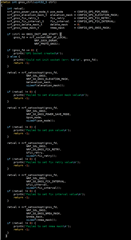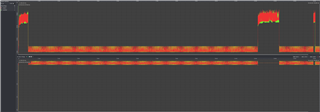Hi,
I need some help in explaining the GPS behaviour I am observing. In the following figures the GPS current draw is depicted.
For the specific scenario the position fix interval is set to 15min (900 sec).
What I observed is that the GPS started outputting positions fixes at about 12min (1 position fix per second),
it then stopped and gave another position fix on the 15min interval.

In the 2 hours scenario I am currently examining, this pattern is observed many times. As a result the GPS gave 596 position fixes instead of 8.
I guess that this pattern has an impact on the energy consumption.
In the figure below you can see the full 2 hours capture.

Please advise, is this behaviour expected?
Is there any wrong configuration that I may have done?
Kind regards,
Panagiotis.


